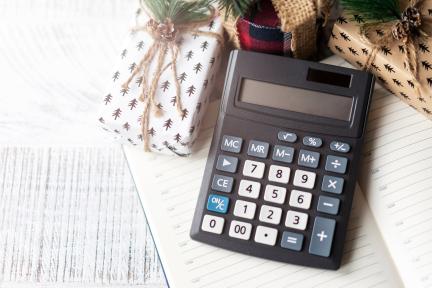Dear member, meet crypto.
Thanks to new technology, brilliant programmers, and a global economy, we're seeing a whole new world developing through digital assets and cryptocurrency. Even if you're not interested in investing yet, don't stay in the dark – get to know crypto! You can start here:
Bitcoin, the Blockchain, your Wallet, and YOU
We've all heard it: blockchain, Bitcoin, cryptocurrency – it sounds like something out of a sci-fi movie. But it doesn't have to be confusing.
As with anything new, awareness is key. So, let's start with some quick facts on how to better understand what cryptocurrency is and how it works.
- First things first: nothing is tangible. You can't hold it, but you can store it in a wallet (more on that later)
- Cryptocurrency is 100% digital, electronic, and isn't tied to any organization or government, although some crypto is "tethered" to the value of other currency such as the USD
- Individuals can purchase cryptocurrency through dedicated exchanges which charge a fee based on the size of your transaction. To hold your purchased cryptocurrency, a digital "wallet" is created as an app. This wallet won't ever see the inside of your purse or pants pocket, though. Like cryptocurrency itself, it's all digital
- The value of cryptocurrency can change rapidly and there is no central authority that maintains its value. For that reason, purchasing cryptocurrency as an investment can be riskier than others
What to know about blockchains
A blockchain is a database that stores information differently from the way a typical database does. It collects information in sets, or "blocks." When the blocks are filled, they're connected – or "chained" – to the previous blocks and can't be changed. The transactions and verification process use mathematical algorithms, which makes them more secure. All of this information is then duplicated and stored electronically across several computers. This system makes it nearly impossible to change or hack. So, when you purchase crypto, your coin ownership records are stored electronically. Hence, "digital wallet."
Bitcoin today and how it's used
Today, there are thousands of types of cryptocurrencies being traded, but it all started with Bitcoin, which has become a catch-all term for cryptocurrency in general. Another popular term that includes crypto is CVC, or convertible virtual currency. And, with all of these currencies popping up and becoming legitimized, some merchants and retailers have even started accepting it as a payment type.
What other cryptocurrency should I know about?
There are several types of cryptocurrency such as stablecoins (which are backed by an asset to reenforce price stability), non-fungible tokens or NFTs (digital representations of assets that cannot be duplicated), and more. Each has its own set of functions and rules, and many of them operate on different iterations or evolutions of blockchain technology, like Ethereum the most widely used blockchain network.
There's a lot to wrap your head around when you begin to dig into the details. Do your research and be careful when investing and trading digital assets, because the crypto market is more volatile than most stocks.
And be cautious if you're making payments in crypto. CVC and crypto transactions are not easily regulated, which has led to many instances of fraud and money laundering. Treat it as if you're sending cash – only make payments to people or companies that you know and trust.
*Bitcoin is not an obligation of nor guaranteed by Visions Federal Credit Union. Bitcoin and cryptocurrencies are or may be heavily speculative and volatile, may have associated fees. Bitcoin purchases are not federally insured by NCUA.



